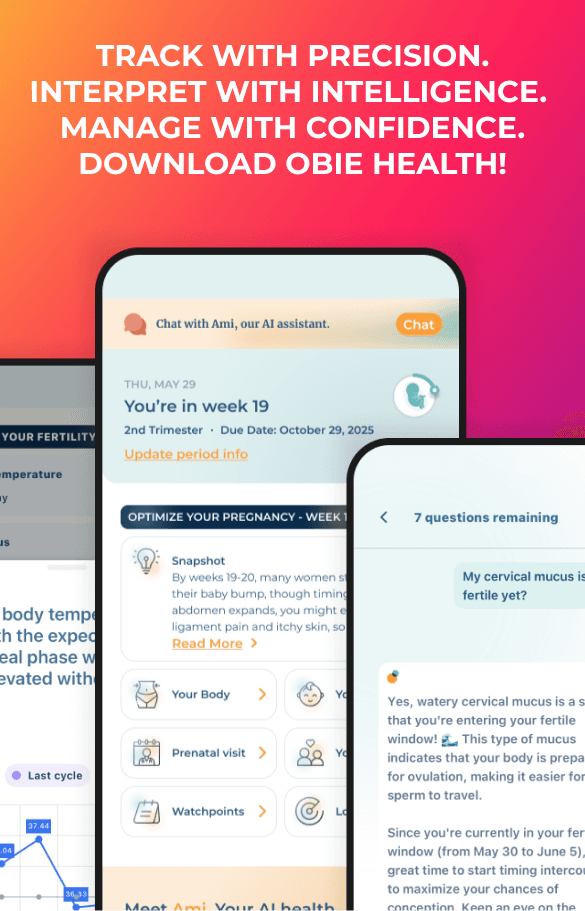IVF Success Rates
IVF
Obie Editorial Team

How often does IVF result in pregnancy?
Many couples seem to have misconceptions about the rates of success from a procedure like in-vitro fertilization, or IVF.
Success rates depend on many factors including:
- Patient age
- Reasons for infertility
- Prior unsuccessful IVF procedures
When is IVF considered a success?
It is also important to understand what "success" means. Is it the rate of getting pregnant or the rate of live births? Live birth rate is probably the best indicator of how successful the IVF procedure is, and in the United States, the live birth rate based on a woman's age for each IVF cycle started is approximately:
- Women under age 35: 30 to 35% success
- Women ages 35 to 37: 25% success
- Women ages 38 to 40: 15-20% success
- Women ages over 40: Under 10% success
When comparing success rates of different clinics, it is important to know what types of pregnancies are being compared. A chemical pregnancy is one confirmed by blood or urine tests, but a miscarriage may occur before confirmation through an ultrasound. A clinical pregnancy is one that has been verified by ultrasound. After a clinical pregnancy has been verified, a miscarriage may still occur, but it is less likely.
In addition to the woman's age, the reason behind infertility also plays a role in determining success rates:
- Male factor: 27.1%
- Endometriosis: 25.8%
- Ovulatory dysfunction: 22.5%
- Tubal factor: 25.3%
- Uterine factor: 19.3%
- Other causes: 20.2%
- Unexplained cause: 25.4%
Read More










